
Editor
Documentário abordando o debate interno do partido socialista chileno no início dos anos 1970; a passagem/transformação de um homem de direita em fervoroso ativista de esquerda, e o fenômeno oposto que ocorre com um operário.
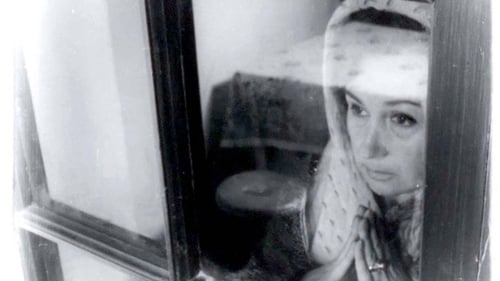
Editor
O primeiro longa-metragem de Raúl Ruiz foi considerado perdido por décadas, até que seus rolos mudos incompletos foram encontrados em um cinema de Santiago. O trabalho do autor chileno foi continuado por sua viúva e editora de longa data, Valeria Sarmiento, também uma cineasta subversiva e brilhante. Tal como o tango, o filme avança para a frente e para trás, com rostos de 1967 e vozes de 2019 se unindo para moldar a história de um homem assombrado pelo fantasma nômade de sua esposa. Documentário e ficção combinam-se de forma bela, engraçada e gloriosamente desconcertante para formar a apoteose de um cinema eternamente sorrindo para a morte.
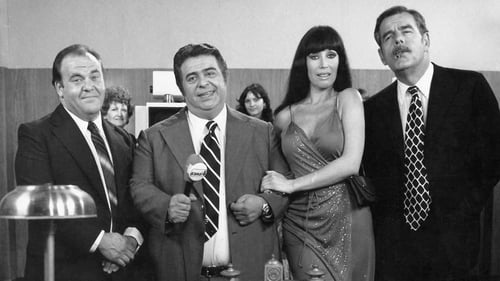
Editor
A television network infiltrates an inept employee (Porcel) in the competition and he begins to ruin all the programs but, instead of subtracting audience, he only managed to improve it.
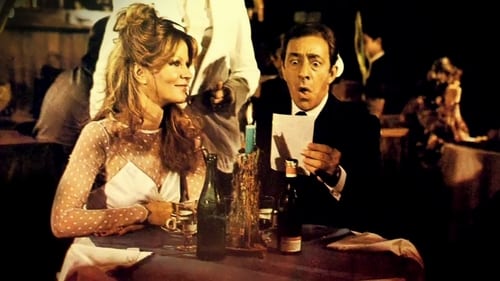
Editor
A recently separated man decides to go to his best friend's apartment, where their different personalities cause crazy events, hilarious situations and, in addition, he meets a beautiful woman with whom he falls in love.
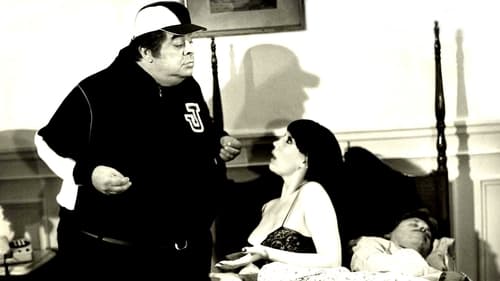
Editor
Horacio and Claudio are two friends who plan to spend a fun weekend with two young ladies. Settling into the home of Aunt Lucrezia, a millionaire who is traveling through Europe, a lender shows up and ruins his plans.

Editor
To forget his girlfriend a young man is taken to a beach by his brother and a friend.
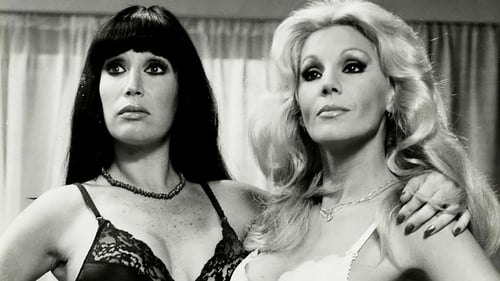
Editor
Two orderlies pretend to be surgeons to impress two young doctors and conquer, through several scenarios. Finally, they are discovered when they had to operate on a mafia boss to remove a bullet.

Editor
A group of young people who want to go camping acquires a circus tent by mistake.
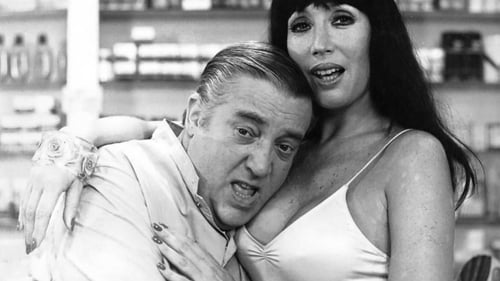
Editor
Alberto and Jorge are employees of a pharmacy. One day, by mistake, they give a client a bottle of poison in exchange for a medication that she had to start ingesting 48 hours later. Realizing this, they decide to go out and look for her with the only data they have: her first name, her striking clothing, and that she was driving an imported motorcycle. So they launch into a crazy race against time touring the fashionable places of the Buenos Aires night, helped by a woman who claims to know the mysterious girl on the motorcycle.

Editor
The story about a family that must maintain an insatiable grandmother.
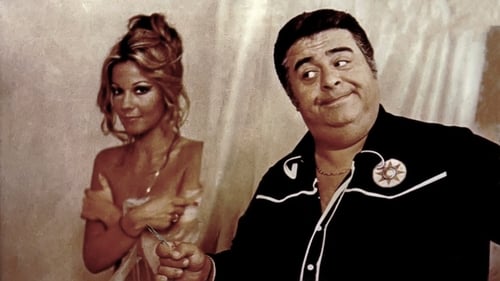
Editor
Jorge is a photographer for a newspaper, from which he is fired. He then begins to work in a detective agency, where he is assigned the mission of protecting Monica, a beautiful woman threatened with death by an ex-boyfriend.

Editor
Leonor Capulletti and Quique Monteschi, fanatics of the same club, love each other in a passionate as well as conflictive courtship, because their respective families are allied in opposing and irreconcilable factions.
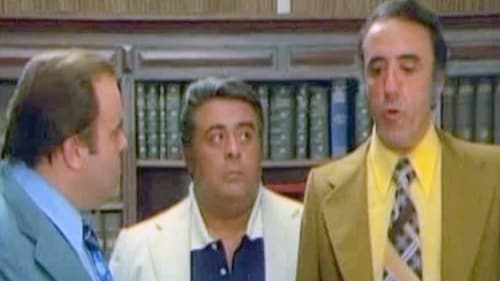
Editor
Catrasca is a photojournalist with a fondness for women of all kinds.
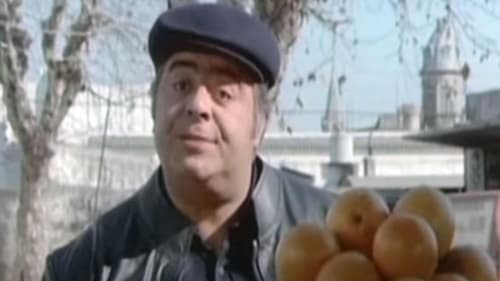
Editor
Catrasca (Jorge Porcel) is a man who works in a restaurant and in his spare time helps in a children's home. His problem is that he carries a family tradition that makes him cause catastrophes in his path, one of which takes his boss (Adolfo García Grau) to the hospital.
Upon leaving the hospital, Catrasca is run over by Graciela (Graciela Alfano), the daughter of Professor Galíndez (Osvaldo Terranova). This is how he meets this professor, who has a formula that says he will be the salvation of humanity, so he is the object of persecutions by villains such as Dr. Linda Winters (Moria Casán).

Editor
Alberto and Jorge are employees of a refrigerator, who one day see a bus where several beautiful tourists flirt with the guide who drives them and think that being guides will give them many love affairs. They manage to meet with the owner of the tourism company and his partner (Frías Garmet and Gamarro Salas, respectively), who hire them immediately, promising them a quick promotion in the company. In reality, Frías Garmet and Gamarro Salas are planning a scam of great magnitude, and they need two unwary to indisting them.
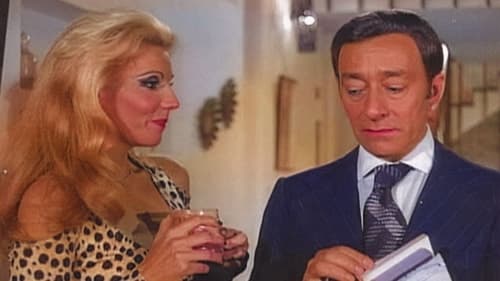
Editor
Alberto, who has been married to Laura for twenty years, meets Monica in his office, a serious and formal employee with whom he strikes up a friendship.

Editor
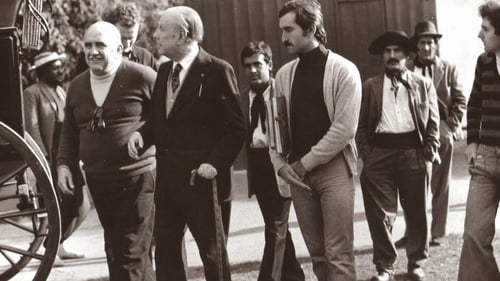
Editor
Benjamin Ortalora is a young man who leaves Buenos Aires after murdering a rival. He goes to Montevideo where his cool boldness draws the attention of gang leader Azevedo Bandeira. When the old bandit becomes ill, Ortalora makes a determined play to take his place.

Editor
Two thieves wander in the chilean desert and finally get to a small town near Bolivia. There, they try to include themselves with the townspeople but their instincts betray them and tragedy ensues. Based on a true story, this film opened one year after the chilean Coup de etat. The day after the opening, script girl Carmen Bueno and director of photography Jorge Müller were taken by police and now they are part of the list of the Desaparecidos.

Editor
In this film the director's recurring concerns return: the divisions in the Chilean left, and its contradictions between what the director calls the "traditional" and the "revolutionary" left. The problem is exposed through the doubts and obsessions of a strange police chief who cannot establish the limits between critical behavior and militant responsibility.

Editor
Sarmiento made her directorial debut with the documentary with this short about a group of Chilean women dedicated to striptease.

Editor
A young working class girl falls in love with an upper class boy who is part of the plot to assassinate General Schneider, head of the Chilean Army.

Editor
Many socially-concerned priests in Catholic Latin America have at some time left their parish churches to go and work in the fields and factories of the poor. Such priests, usually adherents of "liberation theology," are called "worker-priests." This Chilean film tells the story of how one man became a "worker-priest" and won the trust of the poor.

Editor
On January 4, 1971, an extensive dialogue takes place between the president of Chile Salvador Allende and the French intellectual Regis Debray, a discussion about the Chilean process towards the installation of a socialist government. Filmed by a team from Chilefilms, a state-owned company dedicated to the production of audiovisual works, it is a unique testimony to Allende's thinking in the first year of his government.

Editor
Story of the history of the workers' movement in the saltpeter offices of northern Chile. The voices of the workers are heard, with images of the mining sites.

Editor
An early film by Marilú Mallet (as Maria Luisa Mallet) created for the Education Ministry's Department of Culture under Salvador Allende's Popular Unity government. The film combines images with intertitles that present the disparity in land distribution, economic opportunity, and civil rights between the indigenous Mapuche people and Chilean Whites/Mestizos. - KG

Editor
A report on the life of coal miners in the Lota region, in southern Chile, it shows their work activities, their homes, and how the rest of the family picks up coal in the seashore. This documentary is part of a series José Román made with CUT (Central Workers Union), whose negatives got lost during the raids on CUT offices after the coup d’état.

Editor
A foreign journalist arrives on a small Pacific island 200 miles off the coast of South America. Once a leper colony, the island was later transformed into a prison and then, under U.N. mandate, made into an independent republic. Yet despite democratic structures, the inhabitants--who speak a strange dialect composed of Spanish and English--still obey the old prison rules. After sending back detailed accounts of the torture and repression seen everywhere, the journalist realizes that she"s fallen into the trap created for her by the islanders: lacking natural resources, the island"s main export is news. The clearest anticipation of Ruiz"s later European work, The Penal Colony is a powerful document of the tensions and contradictions in Chile in the months before Allende"s electoral victory.

Editor
Chilean soldiers try to survive in the desert after they are attacked by Peruvian troops. The 17 survivors are held together by the Captain. The Lieutenant is a civilian attorney who clashes with the Captain as he pursues the valuable rights to nitrate deposits in the area. When the fighting was over, 25,000 soldiers from Chile, Peru and Bolivia had perished while trying to secure the coveted mineral rights for foreign companies.

Editor
"Tres tristes tigres" é um filme chileno de 1968, o primeiro longa-metragem de Raúl Ruiz. É um drama inspirado na obra de teatro homônima de Alejandro Sieveking.
Com o Golpe Militar de setembro de 1973, o filme perdeu-se no Chile. Mas, graças a uma cópia guardada no Uruguai, pôde ser exibido no Festival Internacional de Cine de Viña del Mar de 1993. Três protagonistas (Tito, Amanda e Lucho) circulam pelos bares tentando ocultar suas misérias.

Editor
Starts a love story between an art student and a medical student, narrated from Monday to Sunday.

Editor
Feature film that wraps, through Jorge Lillo's text, three short films by Helvio Soto

Editor
After living many years in Miami, Bill returns to Chile looking for his brother. One night they meet again and celebrate the event with a night of revelry. The next day, Bill wakes up alone and since then he loses all traces of his brother. Mysteriously a detective appears and offers to help, starting a searching and a succession of misunderstandings.


























